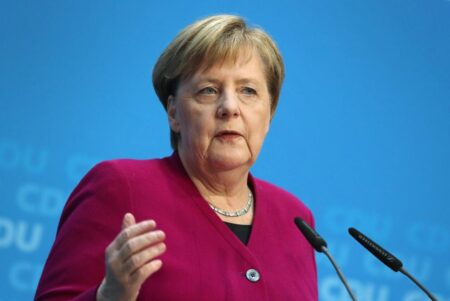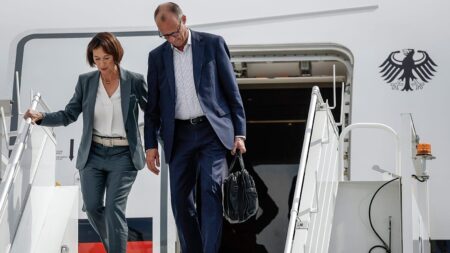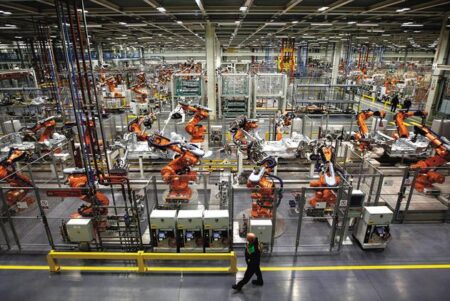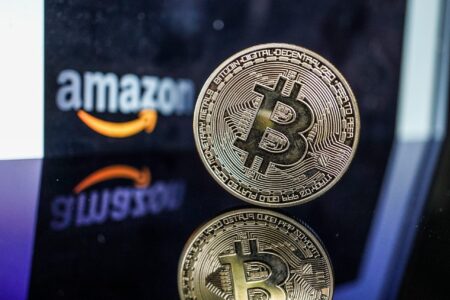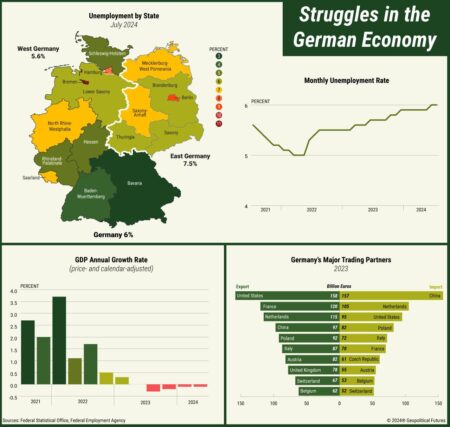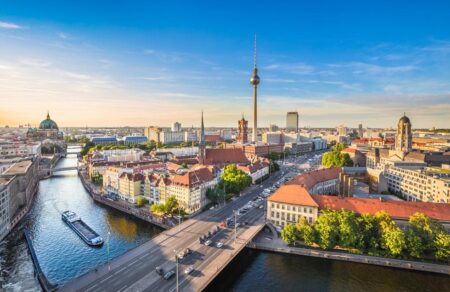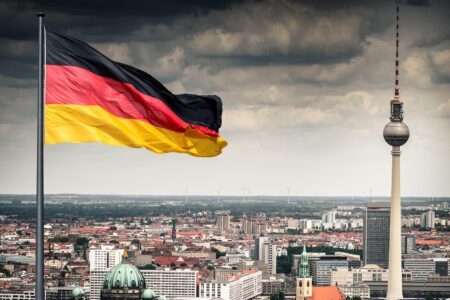Germany’s manufacturing sector is making a strong comeback, with the latest PMI soaring past the vital 50 mark-signaling exciting growth ahead. Despite ongoing global supply challenges, analysts remain cautiously hopeful about what the future holds
Browsing: Germany economy
Spain’s budget deficit is set to fall below Germany’s for the first time in nearly 20 years, signaling a stunning shift in the Eurozone’s fiscal dynamics, reports the Financial Times
German Chancellor calls an urgent auto summit as the industry faces a crisis, with major carmakers unveiling massive job cuts. This high-stakes meeting aims to confront the urgent challenges of electrification and intense global competition that threaten the future of Germany’s automotive sector
German investor morale soared unexpectedly in September, according to the ZEW Economic Sentiment Index released on Thursday. This remarkable upswing signals a fresh wave of optimism, shining through despite persistent economic uncertainties
German manufacturing showed unexpected strength in August, with the PMI indicating a softer decline than many had predicted. This encouraging data fuels cautious optimism amid ongoing economic challenges, Reuters reports
Syrian immigrants are powering Germany’s economic revival, filling essential labor shortages and igniting a wave of vibrant startups. Their bold entrepreneurial spirit and valuable skills are fueling growth and sparking innovation throughout key industries
Bitcoin’s recent surge throws a spotlight on Germany’s costly economic misstep, exposing missed opportunities in the thriving digital asset landscape. Experts caution this could become the nation’s most significant economic blunder of the decade, as the crypto market races to new heights
Continental’s recent split signals a daring transformation in Germany’s classic business approach, paving the way for greater specialization and agility in the automotive industry as it adapts to rapidly changing market demands
Germany’s economy is poised for an exciting surge in 2026, driven by groundbreaking technological innovations and a thriving export market, experts reveal in their latest forecasts
The International Monetary Fund is urging Germany to take bold action by rolling out reforms that will turbocharge productivity and ignite fresh investment. By championing innovation and creating a more flexible labor market, Germany can unleash sustained economic growth and cement its status as Europe’s economic powerhouse
Germany has firmly rejected a proposed ceasefire, overturned a recent tariff ruling, and launched efforts to repatriate its gold reserves. These decisive moves highlight a dramatic shift in the country’s economic and geopolitical priorities
Germany’s May flash manufacturing PMI registered at 48.8, just shy of the anticipated 48.9, highlighting a persistent contraction in the sector. This data underscores the ongoing hurdles faced amid economic uncertainties, suggesting that policymakers may need to consider adjustments to navigate these challenges effectively
In April, German inflation dipped to 2.2%, just shy of what analysts had anticipated. This decrease offers a glimmer of hope in easing price pressures, yet it also underscores the ongoing hurdles facing the economy as policymakers strive to steer recovery through a landscape marked by persistent volatility.
Germany is on the brink of an exciting economic transformation as a fresh “stimulus wave” sweeps in, designed to spark growth and ignite innovation. Investors are eagerly focusing on pivotal sectors, with certain stocks set to thrive from this surge of government backing
Germany may be heading toward recession if U.S. tariffs remain in place, warns the Bundesbank chief. The potential trade barriers could significantly impact the German economy, underscoring the vulnerabilities in its export-driven model.
European stocks surged and the euro rallied following Germany’s landmark debt agreement, signaling renewed investor confidence. The deal is expected to bolster economic stability across the Eurozone, prompting optimism among markets and analysts alike.



